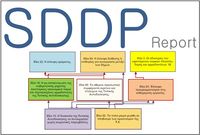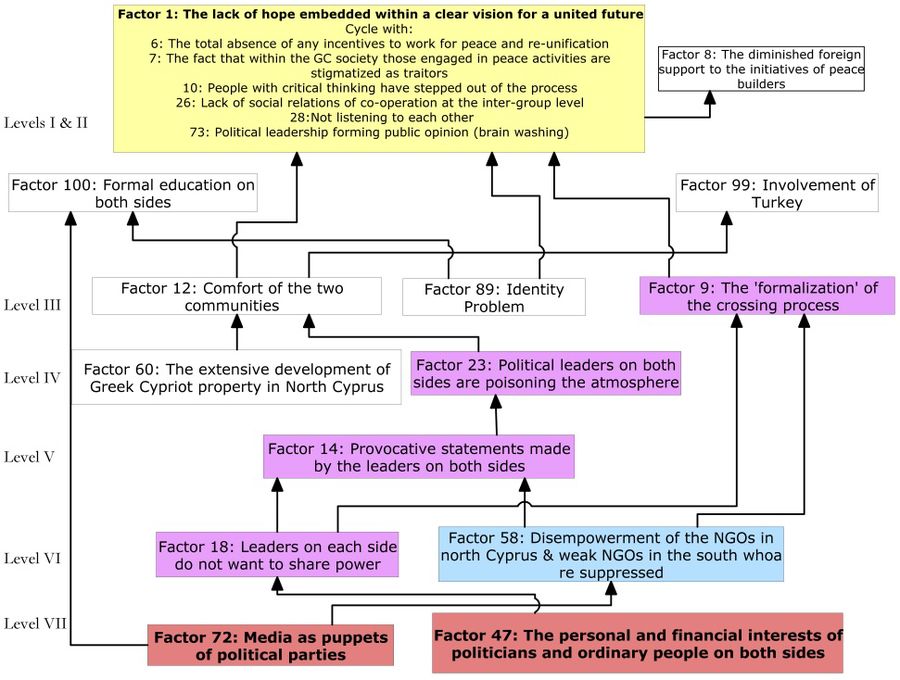SDDP Reinvent Democracy - Obstacles
|
Executive Summary
This paper reports the results of the first of a series of workshops organized by Future Worlds Center under the auspices of the Cyprus Presidency of the Council of the EU. The purpose of this project was to bring together young people from Greece and Cyprus in an attempt to take apart and reconstruct the concept of democracy, an EU founding principle. The workshop was organized using the structured dialogic design process (SDDP) approach within the context of a rich web-based communication environment.
The Triggering Question1 (TQ)1 was
What are the failings of our current political system?
In response to the TQ1, the 22 participants came up with 107 characteristics, which were categorized in 14 clusters. Following the voting process, 49 ideas received one or more votes and were structured to create the influence MAP shown below.
According to the participants of this Co-Laboratory, appear to be the most influential were:
- Χαρακτηριστικό #22, Κορεσμός του παλαιολιθικού συστήματος
- Χαρακτηριστικό #40, Μη εξέλιξη του πολιτικού συστήματος
The Triggering Question2 (TQ)2 was
How could we re-design modern society by envisioning a New Democracy?
In response to the TQ2, the 22 participants came up with 125 characteristics, which were categorized in 21 clusters. Following the voting process, 49 ideas received one or more votes and were structured to create the influence MAP shown below.
According to the participants of this workshop, the characteristics appear to be the most influential were:
- Χαρακτηριστικό #34, Ο λαός ψηφίζει απευθείας τους νόμους
- Χαρακτηριστικό #19, Συμμετοχή όλων, διάλογος, συναπόφαση σε τοπικές κοινότητες και εκπροσώπηση τους στα κέντρα λήψης αποφάσεων
The workshop was facilitated byYiannis Laouris, Eleni Michail, Elia Petridou, Irini Anastasiou, Maria Georgiou, Soteris Demetriou. The workshop was attended by 11 Cypriots participants and 11 Greek participants.
In sum, the participants of the dialogue reported their satisfaction that their voices have been heard and documented and communicated their expectations for follow-up activities to address the diagnosis of their needs.
Sponsor and partners
The workshop was funded under the Action 1.3 - Youth Democracy Projects of the Youth in Action Programme of the European Commission and it was organized by Future Worlds Center in collaboration with ANTIGONE (Greece) , UOP-ELKE (Greece) and Youth for Exchange and Understanding (YEU, Cyprus).

